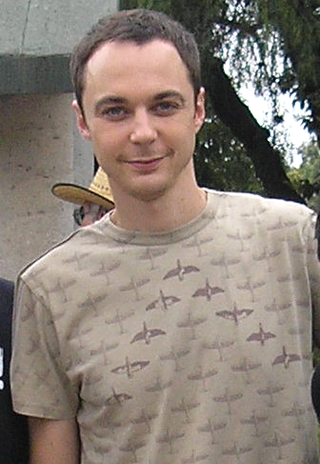Relationships
Why Do We Love The Big Bang Theory’s Sheldon Cooper?
He’s annoying. He’s self-centered. He’s rude. So why does Sheldon fascinate us?
Posted August 19, 2019 Reviewed by Devon Frye
This spring, the television show The Big Bang Theory ended its impressive run of 12 seasons. An unlikely hit about a group of budding academic scientists, the show has already spun off a prequel focused on the childhood of one of The Big Bang Theory’s most memorable characters, Dr. Sheldon Cooper.

Unlike most of the characters on television that capture our hearts, Sheldon is not memorable for his compassion. Nor his kindness or heroic sacrifices. Nor his patience or understanding.
On the contrary, he is unusually self-centered, brutally honest, and thoughtless. His empathy is harder to locate than the Higgs boson. Like the elevator in his apartment building, his heart seemed incapable of being moved. He is as frustrating and irritating as he is brilliant.
So why did many people find him endearing? Because we are fascinated by genius, and that is one thing the Nobel prize-winning Dr. Cooper had in spades.
Sheldon possessed striking analytical intelligence but at the expense of emotional intelligence. Audiences remained hopeful that he would reach a balance between these types of intelligence. Some of the most memorable moments of the show involved Sheldon breaking through the cold confines of logic to show a genuine understanding of someone else's feelings.
Off the TV screen, trade-offs between cognitive and emotional skills are often observed in savants, people who possess superhuman cerebral abilities. Let's take a closer look at what might make real-world savants tick, and whether there is a hidden mental power trapped inside your brain waiting to be unleashed.
Is There a Genius Sleeping Inside Your Brain?
In the 1988 movie Rain Man, Dustin Hoffman portrays a character inspired by the savant Kim Peek, who was born without a corpus callosum, the bundle of nerves connecting the brain’s hemispheres. Peek never developed the fine motor skills needed to dress himself or brush his teeth, and he had a low IQ. But he would have crushed you in Trivial Pursuit with his encyclopedic knowledge.
Nicknamed “Kimputer,” Kim had an off-the-charts photographic memory, able to recall mostly anything he’d read in books (reportedly 12,000 of them!) or heard in a song. He was also a human GPS, having memorized the road maps of all major cities throughout the United States in astonishing detail.
The otherworldly talents of savants vary. Ellen Boudreaux, born blind and autistic, can play a piece of music flawlessly after hearing it just once. Autistic savant Stephen Wiltshire is able to draw strikingly detailed landscapes from memory after viewing them for just a few seconds, earning him the nickname “Human Camera.”
You may envy these superhuman abilities, but they usually come at a high cost. One area of the brain doesn’t seem capable of thriving without pulling substantial resources from other areas. As we saw in Rain Man, nearly half of savants have autism-like characteristics and struggle with social interactions. In some savants, brain damage is so severe they can’t walk or take care of themselves.
Then again, Daniel Tammet is a high-functioning autistic savant who suffered epilepsy and behaves like any ordinary guy—until he recites Pi to 22,514 decimal places or speaks in one of the 11 languages he knows. Other human calculators, like the German mathematical wizard Rüdiger Gamm, do not appear to be savants with a brain anomaly. Gamm’s gift is attributed to unidentified genetic mutation(s).
Perhaps even more fascinating are people who are leading perfectly normal lives and then acquire savant-like skills after some sort of head trauma. There are only 30 or so known cases in the world in which ordinary people suddenly obtain extraordinary talents following a concussion, stroke, or lightning strike. The newfound talent they acquire may be a photographic memory, musical abilities, mathematical genius, or artistic brilliance.
It raises the intriguing question: What sort of hidden talent might be caged in your brain? If unleashed, would you be able to rap like Kanye West or bust a move like Michael Jackson? Do math like Maryam Mirzakhani or paint happy little trees like Bob Ross?
Similarly, there’s a curious connection between acquired artistic abilities and some forms of dementia, like Alzheimer’s disease. As neurodegenerative disease ravages the higher-order functions of the mind, extraordinary new talents in drawing or painting sometimes emerge.
Another parallel between the appearance of new artistic abilities in people with Alzheimer’s and savants is their single-minded focus on their talent at the expense of social and language skills. These cases lead some researchers to hypothesize that the destruction of brain regions involved with analytical thinking and language has allowed latent creative skills to shine.
Neuroscientist Allan Snyder at the University of Sydney in Australia has been working on a noninvasive method to temporarily quiet parts of the brain by shooting weak electrical currents through electrodes placed on the head. After he dampened the activity of the same analytical region destroyed in people with Alzheimer’s who transform into artists, his subjects were much better at solving a puzzle that required creative, out-of-the-box thinking.
(I hate to break it to Snyder, who has spent thousands of dollars on his neurological equipment, but I can achieve the same result with a bottle of cheap wine.) At any rate, the findings led Snyder to believe that we all have savant-like abilities, but our brain deliberately suppresses them.
We are a long way from understanding if everyone has a little Rain Man chained up in the dungeon of their brain—and, if so, how to release these seemingly miraculous powers. But given the rarity of their appearance and the often debilitating trade-offs associated with these mad skills, I would not go banging my head against the wall in an attempt to turn them on just yet.




